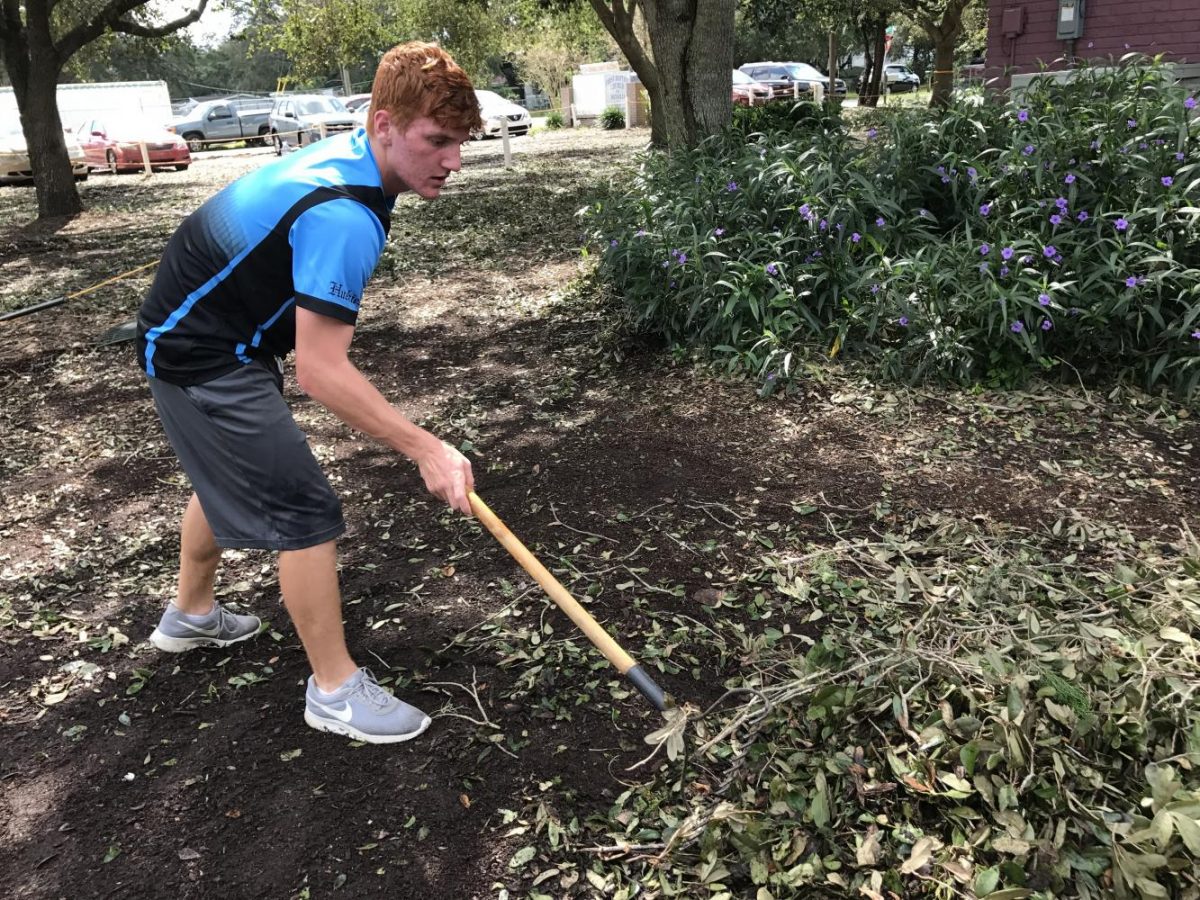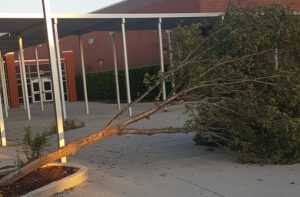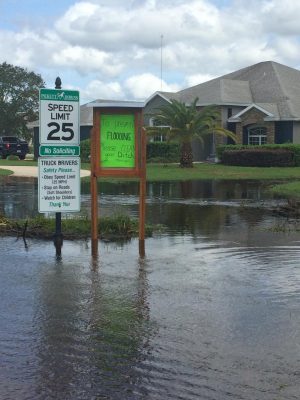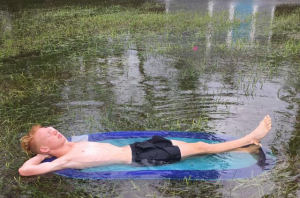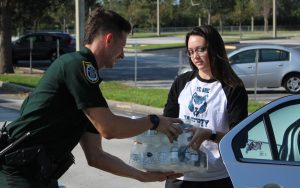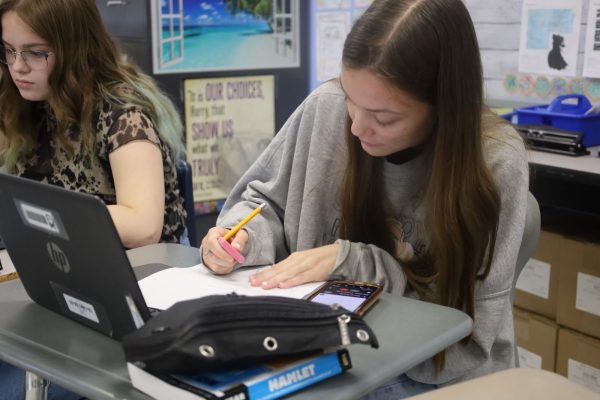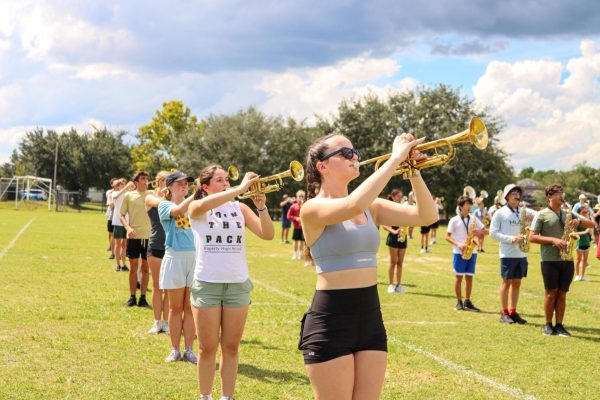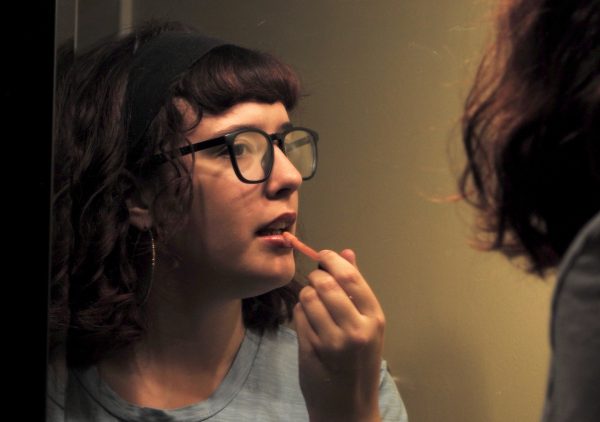Irma’s inconveniences
photo by Bryson Turner
Sophomore DJ McCunney cleans up fallen tree branches in Orange County Academy. Along with three other friends, McCunney decided to help out the community after seeing all the damage caused by Irma.
From floods that turned into kayaking adventures to a scramble to fill up on gas, Hurricane Irma’s effects highly impacted life before, during and after the hit. Residents worried that the hurricane would devastate Florida as a category 5 storm, but once it reached central Florida, it was a weaker category 2.
Flooding, a lack of gas, power outages, and school closed for a week were the most prominent inconveniences which resulted of the hurricane. School was also cancelled for a week, which had its positives and negatives as students got a break; however, makeup days will be taken from teacher workdays.
For water damage, mostly areas prone to flooding were affected. This included the Riverside Park field, which received at least five feet of water, attracting fun seekers.
“It [was] fun to kayak in, [but] weird because you would kayak past the tops of trees,” junior Carson Murray said.
He was among many to take advantage of this occasion. Another area affected was the Duda Farms grass fields, which filled with shallow water and flooded the nearby golf course as well.
This was an attraction for those who live in Oviedo as residents appreciated its calming appearance.
In preparation for the hurricane, people filled up their gas tanks in case of a mandatory evacuation or gas station power loss, causing gas stations to run out. This created issues for everyone, even students who need to drive to school, another reason for school being cancelled.
Senior Jaden New, who now lives in Sanford, panicked when his gas ran low and was unsure if he would be able to make it from Sanford to Oviedo in his car. He downloaded an app which told him which stations had gas left.
“I was stressed,” New said as he rushed to a nearby Mobil to fill up his tank while he had a chance to do so.
Power outages proved to be difficult to get around, as heat crept in, Wi-Fi cut off, and boredom struck. This had a disastrous result for senior Danielle Muse.
“My power went out so I had nothing to do except homework,” Muse said.
Even when their power came back, some households didn’t have Wi-Fi. A few even discovered that the hurricane tampered with their air conditioning unit and were left with no AC for some time.
Senior Charlene Nguyen, who lives in Waverlee Woods, a neighborhood near Lockwood, was out of power for over a week.
“It was hotter inside my house than outside because there was no AC,” Nguyen said.
Hotels were willing to accommodate for these hardships. Although they are usually not pet-friendly, they accepted pets, provided free food, and gave discounts on snacks. This was not only a kind gesture to the citizens, but it was also a clever way for them to get business after the hurricane.
The curfew was lifted early, which was arguable as roads were flooded, covered in blown away limbs and leaves, and traffic lights here and there were out. Also, many stores remained closed as they did not have adequate supplies or were still out of power. Restaurants with power eventually reopened with limited menus.
“I just wanted some Chipotle but they didn’t open back up for a while,” senior Joy Yun said.
Lines for places like McDonalds or gas stations built up before more areas got power back. Although grocery store shelves were left empty as people stocked up beforehand, once the curfew was lifted, people scattered to find an open fast food restaurant to eat at.
Damage overall was minimal. Several stop signs fell over, tree limbs fell off or blew away, and street name signs fell. Cleanup took a few days, some flooding dried up, and for most, power came back. With much help, pick up after Irma was quicker than expected.
Your donation will support the student journalists of Hagerty High School. We are an ad-free publication, and your contribution helps us publish six issues of the BluePrint and cover our annual website hosting costs. Thank you so much!

